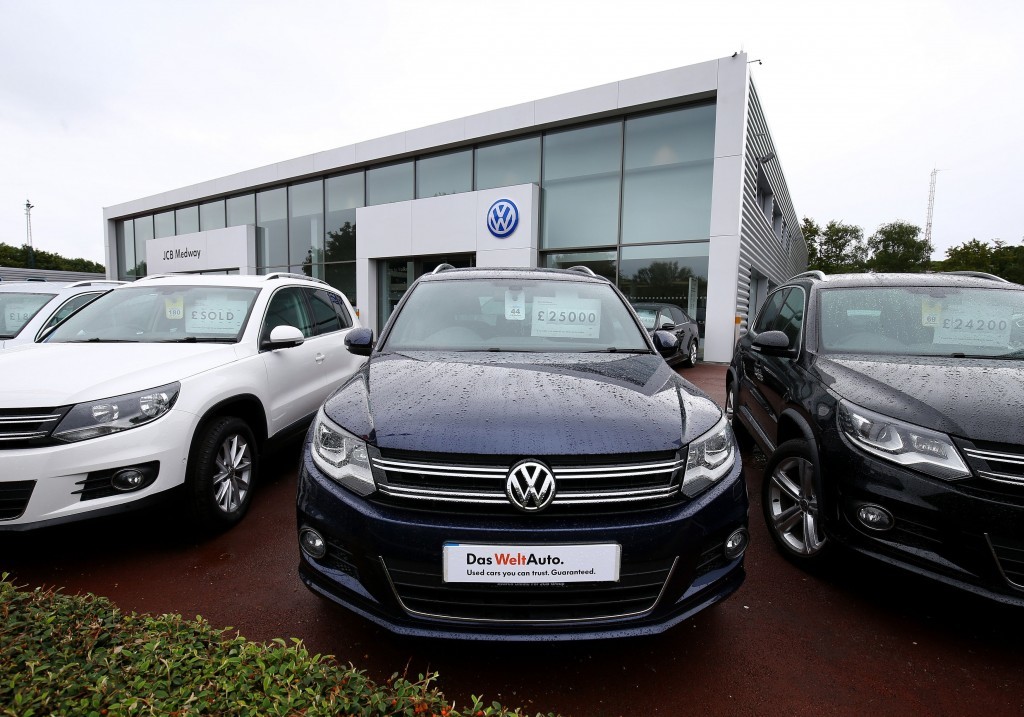
Volkswagen executives in Germany controlled the key aspects of emissions tests whose results the carmaker now admits were faked, according to three people familiar with the company’s US operations.
The criteria, outcomes and engineering of cars that missed emissions targets were overseen by managers at Volkswagen’s base in Wolfsburg, according to sources.
Their accounts show the chain of command and those involved in the deception stretched to Volkswagen headquarters. While the company has asked German prosecutors to open an investigation, the executive committee of the supervisory board has backed former chief executive Martin Winterkorn’s statement that he knew nothing about the malfeasance.
Meanwhile, VW may also have used software to fake diesel-emission tests in 1.2-liter engines, widening the number of vehicles under scrutiny.
Emissions testers at a site in Westlake Village, California, evaluated all the cars involved according to criteria sent from Germany and translated into English, and all results were sent back to Germany before being passed to the US Environmental Protection Agency, one of the people said.
If any vehicle failed to meet emissions targets, a team of engineers from Volkswagen headquarters or luxury brand Audi’s base in Ingolstadt was flown in, the person said.
After the group had tinkered with the vehicle for about a week, the car would then pass the test. VW had no engineers in the US able to create the mechanism that cheated on the test or who could fix emissions problems, according to two other people.
Audi development chief Ulrich Hackenberg and Porsche development head Wolfgang Hatz are among those who will leave the company in the wake of Winterkorn’s resignation two days ago, two people familiar with the matter said.
The two previously ran units at the heart of the affair – Hackenberg, a Winterkorn confidante – was responsible for VW brand development from 2007 to 2013, while Hatz ran the group’s motor development from 2007 to 2011.
Probes in the US are picking up, with 27 states planning to subpoena the company in a joint investigation, said Eileen Boyce, a spokeswoman for Illinois Attorney General Lisa Madigan. The states will pursue the investigation under consumer-protection and environmental laws, according to several attorneys general.
The EPA said the company admitted it cheated its way through US air pollution tests. It could face fines of as much as $18billion euros for reporting false results from the VW Jetta, Golf, Beetle and Passat and the Audi A3.
Shares fell as much as 5.4% to 112.50 euros in European trading, taking their decline since the disclosure to almost 30%.
All of the cars found with the software that enabled them to cheat on the tests were evaluated at the Westlake Village site and from 2012 at a larger facility in Oxnard, California, said one of the people. The laboratories there, which used equipment provided by Graz, Austria-based AVL List GmbH, tested cars for VW brands around the world, not just those intended for the U.S. market, the person said.
AVL List spokesman Michael Ksela confirmed that the company supplied equipment for the Oxnard, California site. He ruled out that AVL List staff was involved in Volkswagen’s emissions testing on site.
While it was often the case that lab results showed emission levels of carbon dioxide or nitrogen oxides which differed by 10 percent or 20 percent from road results, the person said tests never showed emissions 35 or 40 times greater than might have been expected, suggesting that any software tweak might have been installed before reaching the Californian testing sites.
German Transportation Minister Alexander Dobrindt said there is also discussion now about 1.2-liter cars being affected.”
Dobrindt said in a speech to parliament in Berlin on Friday. “At least for now we believe that possible manipulations can come to light here, too. That’s being further investigated in the current talks with Volkswagen.”
So far, the “illegal” tampering with emission controls affects about 2.8 million Volkswagen vehicles in Germany with 1.6-liter and 2-liter diesel engines, including light utility vans, Dobrindt said.
Germany’s motor-vehicle certification bureau has asked VW for “a binding statement on whether the company can redress the technical manipulations it has acknowledged so the vehicles can be returned to a condition that meets technical regulations,” said Dobrindt, who set up a government investigating commission this week after Volkswagen’s actions came to light.
Volkswagen “has pledged full support for the commission’s work and to cooperate in the investigation,” he said.